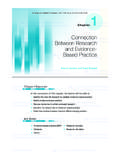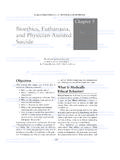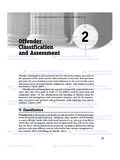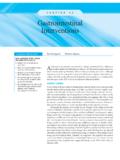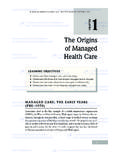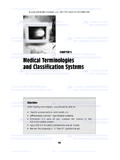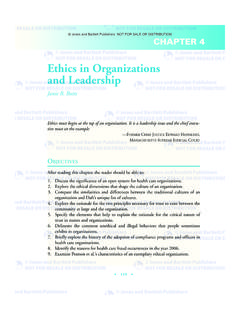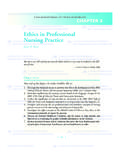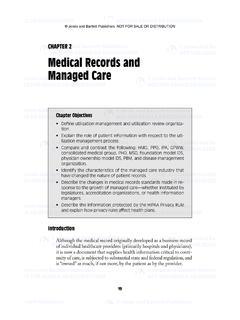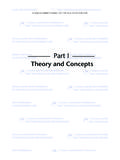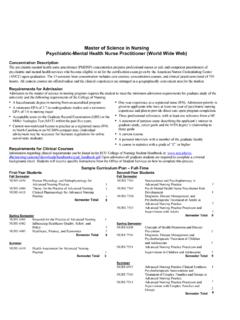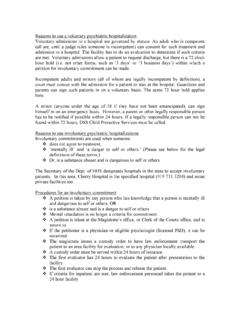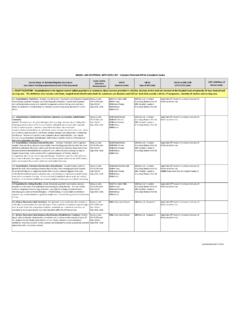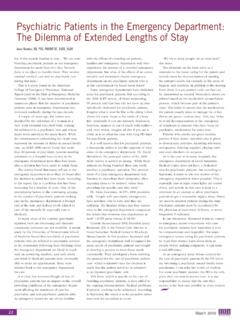Transcription of CHAPTER Issues and Trends in Psychiatric- Mental Health ...
1 21 Advanced practice registered nurse (APRN) Behavioral healthCase managementDiagnostic and Statistical Manual of Mental Disorders, 4th ed., text revision (DSM-IV-TR)Evidence-based practice (EBP)Managed careMental disorder or illnessMental healthMental Health parityNeurosisNurse practice actsNursing diagnosisNursing documentationNursing processOutcomes of carePrimary Mental Health carePrimary, secondary, and tertiary preventionPsychosisStandards of practiceStandards of professional performanceThird-party reimbursementKEY TERMSI ssues and Trends in psychiatric - Mental Health NursingKaren A. BallardAfter reading this CHAPTER , you will be able to: Discuss the applicability of standards of practice to psychiatric - Mental Health nursing.
2 Explain the differences in primary, secondary, and tertiary prevention in the fi eld of Mental Health . Describe the application of the nursing process to psychiatric - Mental Health nursing. Defend the need for Mental Health parity in Health care. Contrast the differences and similarities in the practice of psychiatric - Mental Health registered nurses and psychiatric - Mental Health advanced practice registered 2110/3/07 11:59:05 AM10/3/07 11:59:05 AM Jones and Bartlett Publishers. NOT FOR SALE OR DISTRIBUTION22 CHAPTER 2 Issues and Trends in psychiatric - Mental Health NursingOverviewPsychiatric- Mental Health nursing is an integral part of the continuum of nursing practice.
3 The American Nurses Association (ANA) describes psychiatric - Mental Health nursing as a specialized area of nursing practice committed to promoting Mental Health through the assessment, diagnosis, and treatment of human responses to Mental Health problems and psychiatric disorders (ANA, 2007, p. 1). As a core Mental Health profession, psy-chiatric- Mental Health nursing employs a pur-poseful use of self as its art and a wide range of nursing, psychosocial, and neurobiological theo-ries and research evidence as its science (ANA, 2007, p. 1). The practice of psychiatric - Mental Health registered nurses includes the provision of comprehensive, patient-centered Mental Health and psychiatric care and treatment and outcome evaluation in a variety of settings across the entire continuum of care (ANA, 2007, p.)
4 14). Mental Health Defi nitionsKarl Menninger described the state of Mental Health as the adjustment of human beings to each other and to the world around them with a maxi-mum of effectiveness and happiness (1945, p. 1). Others see Mental Health as the individual s ability to be, to act, to grow, to master, and to become whatever the person wants to be. The ANA views Mental Health as emotional and psychological wellness; the capacity to interact with others, deal with ordinary stress, and perceive one s surround-ings realistically (ANA, 2007, p. 67).The ANA defi nes a Mental disorder or illness as a disturbance in thoughts or mood that causes maladaptive behavior, inability to cope with nor-mal stresses, and/or impaired functioning.
5 Etiol-ogy may include genetic, physical, chemical, bio-logic, psychological, or sociocultural factors (ANA, 2007, p. 67). Mental illnesses have been traditionally categorized as neuroses or psycho-ses. A neurosis is a Mental disorder usually charac-terized by anxiety and other uncomfortable and distressing symptoms for the individual while re-ality testing remains intact. A psychosis is a Mental disorder in which the individual experiences gross impairment of reality testing, severe per-sonality disintegration, and impairment in meet-ing the ordinary demands of everyday life. Concerned about the continued practice in Health care of differentiating between Mental and physical disorders, the American psychiatric As-sociation (APA) offers the following defi nition of a Mental disorder: a clinically signifi cant behavioral or psychological syn-drome or pattern that occurs in an individual and that is associated with present distress ( , a painful symptom) or disability ( , impairment in one or more important areas of functioning) or with a signifi cantly increased risk of suffering, death, pain, disability or an important loss of freedom.
6 It must currently be considered a manifestation of a behavioral, psychological, or biologi-cal dysfunction in the individual. (2000, p. xxxi) The APA stresses that the classifi cation of Mental disorders should not be seen as a classifi -cation of people, but of the disorders that people manifest. Individuals should never be referred to as the manic-depressive, the alcoholic, or the schizophrenic, but as the client or individual with schizophrenia, manic-depressive episodes, or alcohol dependence. It is equally incorrect to view individuals as the cardiac or the gallblad-der. Such labeling reduces the person to a condi-tion or disease and ignores his or her individual-ity and this era of managed care, the term behav-ioral Health is increasingly being used instead of psychiatric or Mental Health care.
7 Behavioral Health is intended to encompass treatment for Mental Health disorders and substance abuse as well as Issues addressed by employee assistance programs (EAPs). Some Mental Health practitio-ners are concerned that it may not be in the client s best interest nor facilitate obtaining appropriate Mental Health services to use such an imprecise term to describe the specialty. A client in com-menting on the term behavioral Health said that To me, it implies if I would just change my be-haviors, I wouldn t have a Mental illness, and a nurse stated Call it what it is. We have cardiac care units, not happy heart units (Donohue, 2006).
8 Critical Thinking Question Describe how you think a person would feel and/or react to being labeled as the schizophrenic, the case with meningitis, the manic nursing student, or the alcoholic mother. How does such labeling potentially impact upon an individual s ability to function? Nurse Practice ActsPsychiatric- Mental Health nurses are directed in both general and specialty practice by individual state nurse practice acts that establish the authority 2210/3/07 11:59:28 AM10/3/07 11:59:28 AM Jones and Bartlett Publishers. NOT FOR SALE OR DISTRIBUTIONfor professional nursing practice and the rules and regulations for each state.
9 Most state nurse practice acts provide a general description of what consti-tutes the legally protected scope of practice in the state for registered professional nurses (RNs) and licensed practical nurses (LPNs). RNs are indepen-dent practitioners of nursing, whereas LPNs are dependent practitioners who deliver nursing care under the direction or supervision of a registered professional nurse, physician, or other legally au-thorized healthcare practitioner. Some states also describe the scope of practice of advanced practice registered nurses (APRNs) or advanced practice nurses (APNs) such as nurse practitioners (NPs), clinical nurse specialists (CNSs), certifi ed nurse midwives (CNMs), and certifi ed registered nurse anesthetists (CRNAs).
10 The title APRN was sug-gested by the National Council of State Boards of Nursing as an umbrella classifi cation (not a state title) to clarify the nomenclature in the regulation of advanced practice. All nurses are responsible for knowing the statutes, rules, and regulations for nursing practice in the states in which they are licensed to practice. In specialties such as psychiatric - Mental Health nursing, nurses are responsible for acquiring and maintaining competency through appropriate education, knowledge, training, and and Standards of PracticeNurses receive direction for both general and spe-cialty practice from such documents as the ANA s Nursing s Social Policy Statement, Code of Ethics for Nurses, Nursing.
